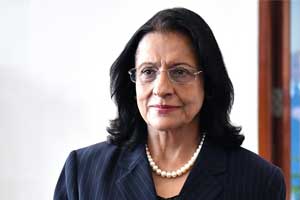- Home
- Medical news & Guidelines
- Anesthesiology
- Cardiology and CTVS
- Critical Care
- Dentistry
- Dermatology
- Diabetes and Endocrinology
- ENT
- Gastroenterology
- Medicine
- Nephrology
- Neurology
- Obstretics-Gynaecology
- Oncology
- Ophthalmology
- Orthopaedics
- Pediatrics-Neonatology
- Psychiatry
- Pulmonology
- Radiology
- Surgery
- Urology
- Laboratory Medicine
- Diet
- Nursing
- Paramedical
- Physiotherapy
- Health news
- Fact Check
- Bone Health Fact Check
- Brain Health Fact Check
- Cancer Related Fact Check
- Child Care Fact Check
- Dental and oral health fact check
- Diabetes and metabolic health fact check
- Diet and Nutrition Fact Check
- Eye and ENT Care Fact Check
- Fitness fact check
- Gut health fact check
- Heart health fact check
- Kidney health fact check
- Medical education fact check
- Men's health fact check
- Respiratory fact check
- Skin and hair care fact check
- Vaccine and Immunization fact check
- Women's health fact check
- AYUSH
- State News
- Andaman and Nicobar Islands
- Andhra Pradesh
- Arunachal Pradesh
- Assam
- Bihar
- Chandigarh
- Chattisgarh
- Dadra and Nagar Haveli
- Daman and Diu
- Delhi
- Goa
- Gujarat
- Haryana
- Himachal Pradesh
- Jammu & Kashmir
- Jharkhand
- Karnataka
- Kerala
- Ladakh
- Lakshadweep
- Madhya Pradesh
- Maharashtra
- Manipur
- Meghalaya
- Mizoram
- Nagaland
- Odisha
- Puducherry
- Punjab
- Rajasthan
- Sikkim
- Tamil Nadu
- Telangana
- Tripura
- Uttar Pradesh
- Uttrakhand
- West Bengal
- Medical Education
- Industry
WHO Experts call for intensified efforts to reduce maternal, newborn deaths

New Delhi: Experts have called for strengthening sexual and reproductive health services in member countries of WHO South-East Asia region, to reduce deaths of mothers and babies, which continues to be at “unacceptable levels”.
“Though millions of lives are now being saved due to efforts in recent years, it is unacceptable that mothers or babies continue to die from preventable causes,” said Poonam Khetrapal Singh, regional director, WHO South-East Asia.
“We must focus on neglected sexual and reproductive health issues such as post pregnancy family planning, comprehensive abortion care, and prevention and management of cervical cancer,” she added.
Khetrapal was speaking at the South-East Asia region’s technical advisory group (TAG) meeting for women’s and children’s health in the national capital, a WHO statement said.
The expert group acknowledged that many countries in the region had made significant progress since 1990, contributing to 69 per cent decline in maternal deaths by 2015, 70 per cent reduction in under-five deaths and 60 per cent reduction in newborn mortality by 2018.
More needs to be done to achieve the 2030 Sustainable Development Goals for health, the statement said.
The TAG, comprising experts from the region and across the globe, recommended focused measures to address both direct and indirect causes of maternal and newborn deaths and prevent stillbirths.
Early marriage and adolescent pregnancies increase the health risk to both mothers and babies, especially as the young mothers themselves are under-nourished and anaemic.
Countries must invest in health services tailored to the needs of their adolescent population, including access to sexual and reproductive health-related information, the TAG recommended.
Quality abortion services including post-abortion care and increasing access to contraception is another area to focus on. Every year nearly 6 million women are treated for complications related to unsafe abortions in the region, it said.
The TAG recommended ensuring quality antenatal care services, especially in the third trimester, for identifying complications and taking remedial measures to minimise the impact on mothers, their unborn and newborns.
Increased budgets for health- particularly for maternal and child health programmes, trained health workforce, especially midwifery personnel, access to essential services and medicines, and continued focus on institutional deliveries, were key to reduction in maternal, child and neonatal deaths, the TAG, which met here on January 15 and 16, reiterated.
High quality sexual and reproductive health services were integral to any drive towards universal health coverage, while access to quality services was a right of everyone, everywhere, Khetrapal said.
The WHO regional director has been promoting universal health coverage and reduction in preventable maternal, child and newborn deaths, as flagship priority programmes in WHO South-East Asia region.
Medical Dialogues Bureau consists of a team of passionate medical/scientific writers, led by doctors and healthcare researchers. Our team efforts to bring you updated and timely news about the important happenings of the medical and healthcare sector. Our editorial team can be reached at editorial@medicaldialogues.in.


